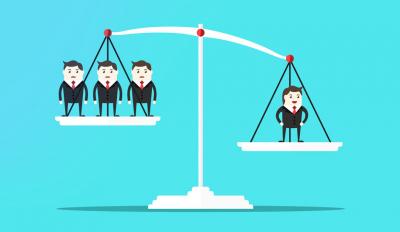How To Go About Corporate Gifting
- BY Sonal Khetarpal
 In Apps & Tools
In Apps & Tools 8740
8740 0
0

In today’s competitive marketplace, businesses across the board are making every possible effort to keep their best customers from switching suppliers and their top performers from throwing in the towel. Gifting is one way to show your clients and employees how you value them. Corporate gifts send out a strong message that you are committed to continuing a gainful relationship. When done well, gifts, and the cost you incur on them, can be an investment with a long payback period.
The right gift can build customer loyalty and increase bottom lines. A cross-industry survey by consultants Bain & Company shows that with every 5 per cent increase in customer retention and loyalty, profits increase considerably—from 25 to 95 per cent. Besides, not all clients need to be on your gift list. You can focus on key clients who bring in the lion’s share of profits. According to the Pareto principle, also known as the 80-20 rule or the law of the vital few, the best customers may number only one-fifth but they account for four-fifths of sales. Likewise, rewarding top-of-the-line performers motivates staff, helps engender loyalty and team spirit, and maintains a sense of intimacy as a company grows. Your company might have ended one round of gifting with Diwali. But if you’ve missed that, or want to do a better job for New Year’s, follow these pointers. Express gratitude to your clients and employees, and while you’re at it, boost sales.
Establish Encouraging Guidelines
Define reward-worthy activities: The first step in establishing a corporate gift rewards programme is to determine how much the business can set aside for gifts. The budget determines what activities can be rewarded, and how. At the same time, the value of a gift must be commensurate with the action, else the purpose of gifting is defeated. For instance, customers may feel insulted if they get a token gift in return for sizeable orders.
So, draw up different categories and decide what ordering levels are reward-worthy. For employees, identify who—the individual or the team—and what actions you seek to award. Rewarding outstanding job performances is common place. But stellar behaviour can be appreciated as well. Start-ups, even if they are cash-strapped, may find it beneficial to recognise employees that go the extra mile or put out great ideas that help improve the company or save costs. As a rule, it usually works better to reward measurable achievements/sales. That way, employees or clients to reward are selected objectively—keeping favouritism out of the picture .
Get employees’ and customers’ perspective: A study by employee motivation agency Maritz shows big gaps between rewards given out by managers and employee expectations. According to Maritz, 55 per cent of employees agree that the quality of their company’s recognition programme impacts their performance. Still, only one in 10 employees is completely satisfied with these efforts. The study also revealed that 64 per cent of employees would appreciate a greater choice of rewards. So, asking employees for ideas can throw up more likable gift options that help you achieve what you set out to do—have happy employees. “Informal interactions with a representative sample of employees are best suited to understand employee needs and motivations. Building a personal rapport with employees is also useful. Companies must balance set policy, budgets with employee expectations,” opines Ritul Pathak, manager, human resource and administration, Pioneer India Electronics.
“Items that staff have ‘window shopped’ but postponed acquiring due to budgetary constraints will be appreciated the most,” suggests Mahesh Tibdewal, partner, Siddharth Enterprises, a corporate gifting company.
Likewise, a rewards programme must offer clients gifts they will appreciate. It is important to understand that there is no one-size solution that can please everybody.
Set rules: The best reward programmes are simple, immediate, transparent and attainable. “Nowadays, customers expect prompt gratification for their patronage. Sometimes, their purchase decisions are dominated by the percentage of reward points. That’s why Metro Shoes has adopted a loyalty programme offering high returns—4 per cent,” affirms Jaiprakash J Desai, CEO, Metro Shoes. Metro Shoes also give customers surprise gifts to bring that added cheer.
Where employees are concerned, while it is important to be consistent in handling gifting, try to avoid awarding the same person again and again. Explain the awards criteria clearly so that all the employees understand that they have a fair chance of being recipients and feel motivated to work hard. Gifts must also be given soon after the achievement else they lose their charm.
Choose Attractive Gifts
Pick carefully: The perfect gift, much like the perfect employee, isn’t easily achieved. To begin with, beyond a recipient’s needs, the choice of gift also depends on the occasion. For a pharmaceutical company’s silver jubilee celebrations, Legend Overseas, a gifting and promotions company, suggested a set of four stainless-steel, German-silver coated glasses.
Having a great gift idea isn’t enough though, explains Tejas Murarka, director, Legend Overseas. Quality is also an important consideration as it reflects the image of the company. “In the end, items that will not end up stashed in a cupboard or be passed on to someone else are the best gifts, for both employees and clients,” adds Murarka.
“An innovative item that has value for money price tag, brings a smile to the recipients face and is used for a long time is the perfect gift,” says Gaurav Bhagat, owner, Consortium Gifts.
“Avoid extremely personalised gifts—these usually have limited usage and can even embarrass the recipient,” cautions Tibdewal. Gifts are meant to enhance goodwill.
Be innovative: Gifts help build customer loyalty. But giving innovative items increases your chances of being remembered. So, think out-of-the-box . “Avoid done-to-death options,” cautions Bhagat. Gadgets have become the preferred choice for employee gifting. “Computer accessories and gadgets make popular gifts as they are not industry-specific and are intended for personal use. Custom-shaped and custom-printed pen drives are popular gifts for clients—these can be pre-loaded with presentation or corporate films,” adds Murarka.
Branded products—apparel, accessories or electronics—at discounted prices also make attractive gifts. “Client gifting is all about marrying uniqueness with a higher perceived value. Our clients Blackberry, RBS, Grohe, and Airtel all agreed that a roller pen from the famed designer duo Shantanu & Nikhil made a great gift—pure luxury at a great price,” adds Bhagat.
Focus on branding: Corporate gifting is a form of advertising, brand recall and developing brand loyalty. Still, “subtle branding works better than overt branding as customers can be wary about using ‘branded’ gifts,” says Murarka. Experienced gift vendors can help you come up with suitable ideas.
Go Beyond
Corporate gifts can prove handy not only to retain existing employees and customers but also to win back customers who have “strayed”. Old clients can be easier and less expensive to win over than cold prospects. Sometimes, all it takes to bring a customer back is to follow up a surprise gift with a great rewards programme. In return, loyal customers will keep the till ringing. That’s precisely why gifting is a win-win or a “wow-wow” proposition.
The budget determines what activities can be rewarded and how
Need more gifting ideas? It may seem impossible to cough up money for gifts during recessionary times. But it is all the more important to reward high performers and good clients when the going is tough. Gifts help keep hard-to-please clients. Gifts also help stimulate staff performances and that is certainly worth every effort, especially when you are trying to escape the doldrums. Read on for gift ideas that go beyond cutting a cheque:
Gifts with sentimental value: A bouquet of flowers and a birthday cake delivered home are small gifts with high sentimental value that work for employees as well as customers.
Gifts reinforcing corporate policy: A company emphasising a work-play balance could gift its employees and customers free hobby classes, spa therapy vouchers, tickets to a concert, a subscription to a favourite magazine, and so on.
Quasi-financial gifts: Quasi-financial rewards having high utility value work best for employees at the lower rungs of the corporate ladder, especially during a recession. Such gifts include items like petrol/diesel coupons to help employees cope with rising gas prices, toys or books for their children, etc.
Gifts related to the workplace: A good parking spot or a new desk and chair are gifts no doubt. But use such gifts with caution—since employees may believe they are entitled to them as a right.
Customer loyalty programmes
A few more points to consider are:
Customer loyalty programmes are best suited to retail outlets, restaurants, and travel companies that interact with clients regularly and can easily spread word of the promotional offer. Businesses looking to encourage existing clients to refer more customers their way would also benefit.
Gifts are more memorable than discounts. But you could choose to introduce a points-based reward programme for all your customers, whereby they can redeem accumulated points for gifts. Or, you could simply gift surprise items to your best customers. The latter route would be more exclusive and is better suited to businesses relying on a few key accounts. Points-based reward programmes should be implemented across board. They are also suited to businesses undergoing many transactions with clients.





























Add new comment